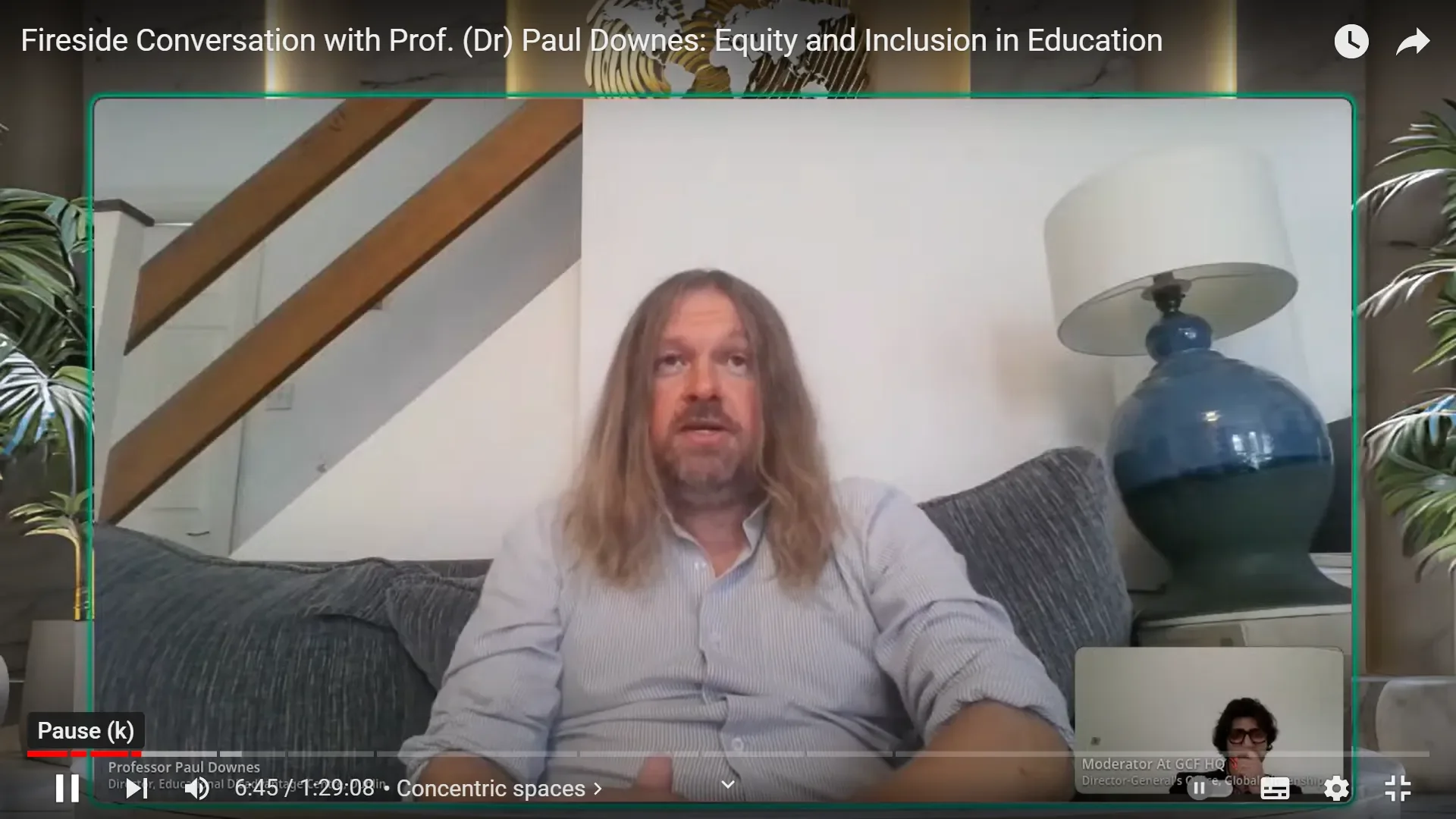

Global Citizenship Foundation Extended Interview with Professor Paul Downes
The Global Citizenship Foundation conducted an extended, live streamed interview https://www.youtube.com/watch?v=V8EnPnMmGLM on August 23rd with Professor Paul Downes, Director DCU Educational Disadvantage Centre, on The Routledge International Handbook of Equity and Inclusion in Education 2024, for which he is the lead editor. https://www.routledge.com/The-Routledge-International-Handbook-of-Equity-and-Inclusion-in-Education/Downes-Li-VanPraag-Lamb/p/book/9781032253893
The Global Citizenship Foundation is one of the leading specialist organizations focusing on achieving the United Nations' Sustainable Development Goal 4.7, that is, Education for global citizenship and sustainable development. The interview's live streamed audience was from 17 countries (India, Pakistan, Bahrain, Japan,Botswana, Kenya, South Africa, Nigeria, Rwanda, Germany, Uganda, Saudi Arabia, Seychelles, UK, Malaysia, Lesotho and Ireland) across 3 continents (Asia, Africa, Europe).
In the interview Professor Downes discussed a range of key themes examined in the International Handbook. These included a concentric spatial turn for equitable inclusive systems, an emotional-relational turn and a dialogical turn. He highlighted the need for a stronger international human rights approach to poverty and social inclusion in education, building from models of the international right to the highest attainable standard of health, through structural indicators for systems change. Exploring Asian features of the Handbook, he referred to chapters from Indian, Chinese and Nepalese contexts, while critiquing Western ethnocentric conceptions of space. A further key feature of the Handbook he emphasised was chapters from indigenous peoples in Canada and Australia, as well as grassroots Roma communities in Spain.
Professor Downes explored the call in the Handbook for an expanded conception of schools both in terms of multidisciplinary teams bridging health and education, and regarding challenge to traditional diametric splits between nature and culture that have largely excised the natural world from schools. He was also asked about the term hermeneutics of suspicion, examined as a feature of many chapters that criticise official surface realities and point to the need to interrogate unofficial features of education and wider social systems.
